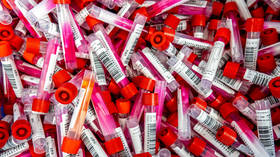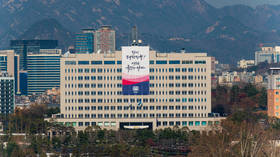Russian press review 14.11.06

Russian press writes about the situation in the Parliament, looks for the roots of poor state of charity in Russia, touches upon the freedom of expression problem in the Russian media and pays attention to the recent wave of alcohol poisoning.
“Novye Izvestia” daily highlights a report by two Russian NGOs – the Human Rights Institute and the Centre for the Development of Democracy and Human Rights.The authors of the report give their views on the activities of Russian parliamentarians. They say a peculiar feature of the current parliament is the 'lack of discussion' and the 'dominance of clannish and bureaucratic interests.' Summing up the latest initiatives adopted by the State Duma deputies, the report says the current regime has created just the opposition it needs – light in hand and easy to control. In conclusion, the human rights organizations regret the fact that their monthly reports are based on events which have already happened, meaning they can't do much to improve the situation.“Novye Izvestia” also refers to the latest social studies and worries about the poor status of charity in Russia. The paper says, most Russian businesses are confused by difficulties in handling donations and unwelcome tax policy. On the subject of private donors, “Novye Izvestiya” points to a low quality of life as the main reason for them ignoring charity. Russians also fear their donations will be used for purposes other than to help the needy.But they do know there are alternative ways to donate – such as voluntary work or giving material other than financial gifts.“Kommersant” business daily discusses whether it might be possible to impose a policy of 'self-censorship in Russia's mass-media'. The article is inspired by a meeting organized by the Russian Public chamber in Kazan, the capital of Tatarstan Republic on the Volga river on the issue.Participants at the meeting were not unanimous in their attitude towards the problem, and some suggested the creation of a “Journalists' Charter” – a set of ethic norms for the Russian press.The people behind the idea worry that some sensationalist media outlets are abusing their right to freedom of speech to publish inaccurate articles.But journalists at the meeting doubted a set of rules like that could ever be drawn up – they say it’s unrealistic to think that all media, especially tabloids, can be controlled in this way.In light of the recent deaths of 360 people from alcohol poisoning in Russia, “Izvestiya” daily writes about proposals made by regional authorities to fight the trade in fake alcohol.One idea is that consumers can send the serial number of each bottle of vodka via text message to a specially set-up service.But the most extraordinary was suggested in Tatarstan where, in 24 communities, vodka can now only be bought in post offices. In fact, it's the first time these people have been able to buy alcohol legitimately because there are no local shops in those communities.The paper suggests that if the initiative is successful, the alcohol trade could be expanded to other state institutions.
You can share this story on social media:












